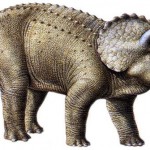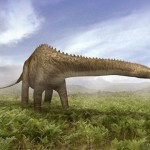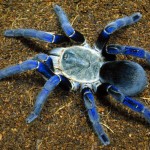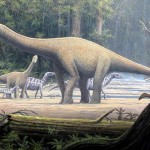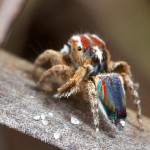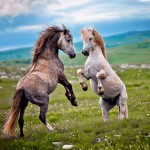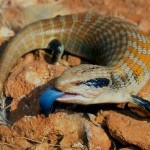One of the most well-known dinosaurs, the triceratops was a herbivorous titan that was very well equipped for a fight. Triceratops is a genus of herbivorous dinosaur that comprises two validated species – triceratops horridus and triceratops prorsus, both of which roamed Earth during the Late Cretaceous period (68-65 Ma) before being eradicated in the …
Category Archive: Animals
Diplodocus Facts
Diplodocus is, without doubt, one of the most famous dinosaurs. It belonged to the group known as the sauropodomorphs and was around in the Late Jurassic period – specifically the Kimmeridgian and Tithonian eras roughly 154-150 million years ago. It reached sizes of up to 25 metres (82 feet) in length and was predominantly found …
Cobalt Blue Tarantula Care
By Neil Hammond – This beautiful Old World tarantula is well known for its iridescent blue legs and light grey carapace and abdomen. This tarantula is fairly common, although it is not recommended for the beginner. Being an aggressive, fast and defensive tarantula it should not be handled and it is also a very shy …
What do Pet Snakes Eat
Pet snakes that eat fish The most commonly available exotic fish eating snake in South Africa is the American Garter Snake. Other fish eating snake species include: Ribbon Snakes, American Water Snakes and European Grass Snakes. Snakes that eat fish are among the easiest non-rodent eaters to feed, as suitable prey is available in almost …
Animal Parenting Behavior
Many animals aren’t exactly candidates for parent of the year, often leaving their babies to fend for themselves shortly after birth — or worse. But humans aren’t the only species to provide their young with a safe upbringing. Plenty of animals care for their offspring through childhood, using a range of strategies: playing teacher, exploiting …
Sauropods Facts
Had their fossilised bones not emerged from the ground, no one would believe that they had ever existed. But it’s hard to miss thigh bones that are as tall as a human and thoracic vertebrae so huge that you need a forklift to move them. Ever since sauropods — the giant dinosaurs with the extra-long …
Facts About Spiders
From predatory females who only stop hunting long enough to grudgingly reproduce (and then find a meal in their hapless mate) to males driven for unknown reasons to amputate their own sex organs, spiders are the top contenders for having nature’s most terrifying mating rituals. Danger lurks everywhere and often; for the smaller male spider, …
Interesting Facts About Cougars
Cougars are common in many parts of North and South America, where they inhabit hilly terrain in forests and mountains. In adapting to their environment, they have developed a number of characteristics that make them especially good jumpers. They can leap up to 39 feet as well as scale rocks and fallen trees.
Facts about Horses
(All photos – European wild horse from Bosnia and Herzegovina, near city Livno) Horses and cows might stand in the same fields but they are quite different animals. In fact, horses are more closely related to the rhinoceros and the tapir than they are other farm animals. The ancestors of the horse were small deer …
How do Lizards Catch Their Prey with Tongue
How do some amphibians and reptiles catch bugs with projectile tongues? Imagine if your tongue was 80 per cent the length of your body and you could poke it out and reel it back in within 20 thousandths of a second. Well, if you’re a lungless Hydromantes salamander that’s one ability you already possess.





